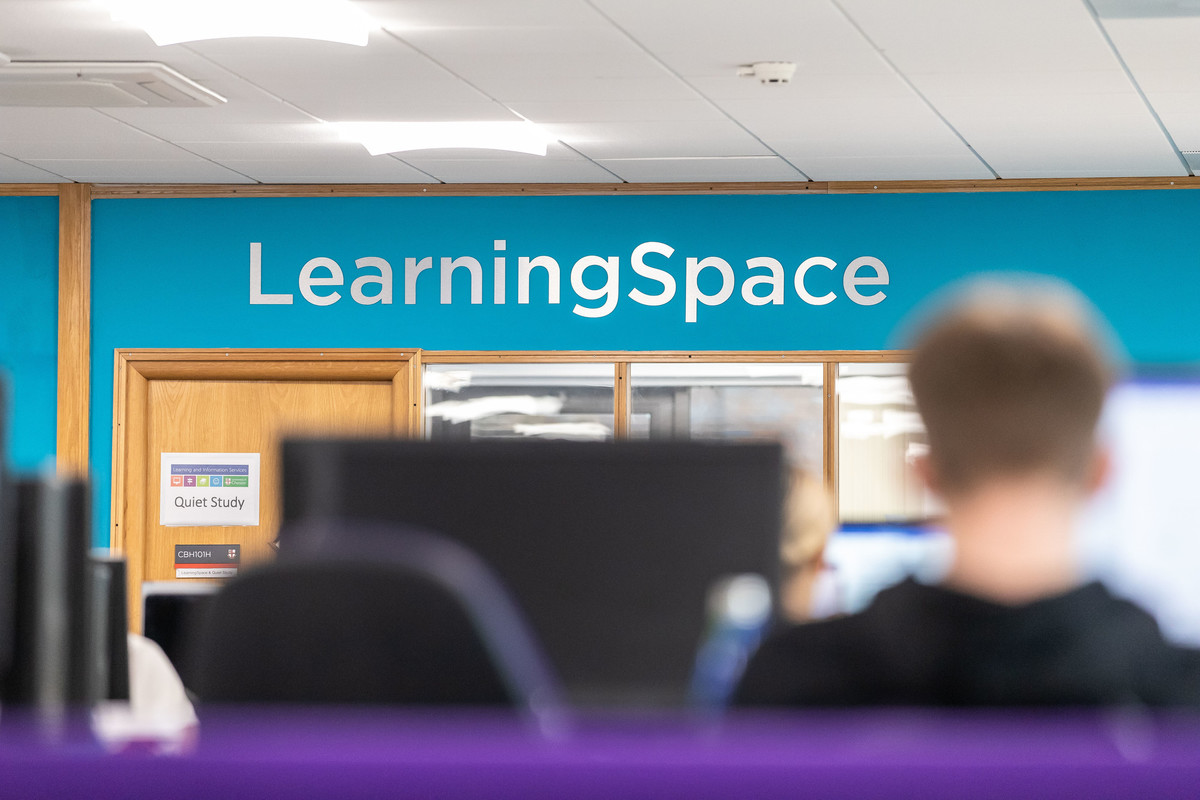Financial Technology (FinTech) and Business Analytics (with optional Placement/Project year) MSc


Accreditations

You are viewing Course summary
Course Summary
The MSc Financial Technology (FinTech) and Business Analytics programme is specifically crafted to advance the career prospects of professionals engaged in fintech, data analysis, and business management roles.
Successful completion of this programme will enrich your comprehension of financial technology, data-driven decision-making, Artificial Intelligence applications and coding skills in today's dynamic business landscape.Our programme emphasises real world learning. All our students from the FinTech & Business Analytics programme can access real-world financial and economic datasets powered by Alpha Vantage API.
Furthermore, you will be introduced to an array of research methodologies and analytical techniques. The concluding project module will nurture your critical thinking and investigative aptitude, manifesting in the form of a dissertation, a real-world case study, or a novel business development proposal—all tailored to foster your professional interests and align with your career aspirations.
There is an option to choose a Project/Placement year for this course, at an additional cost.
Optional 2-year master's to suit your needs
Choosing a Professional Placement MSc is a win-win for your career, giving you the chance to get real experience, apply your cutting-edge skills in the workplace and stand out to future employers.
In the first year you will have help from the University to find a placement, whilst developing your expertise. You will then spend your second year out in industry on placement, getting the chance to work with industry professionals and grow your network of industry contacts. Bringing the latest business school insights to industry, you will get to make a difference to the workplace and make lasting links with your employer.
Students need to find and secure their own placement, supported by the University. A preparation module will also help you to get ready for your placement.
What you'llStudy
Students will complete four modules to acquire an in-depth understanding in the following areas: financial technology management, application of Artificial Intelligence, business and financial analytics, programming, and digital transformation.
Additionally, there is a final project that can take the form of a dissertation, a case study analysis, or the creation of a new business proposal.
If you choose a placement or project year, the Research Dissertation module will be replaced by a placement or project module.
Module content:
- Financial data - sources, collection, ethics and sampling techniques
- Descriptive statistics-mean, median, mode, standard deviation, variance, coefficient of variation,
etc. - Inferential statistics-correlations, regression, t-test,
etc. - Time series analysis-auto regression and moving averages (ARIMA models)
- Ms Excel - analysis toolpak and solver
- Use SPSS, Ms Excel and AMOS for data manipulation (for example structural equation modelling)
- Financial Analysis-estimation of beta, event study, testing market efficiency, portfolio optimisation-variance-covariance matrix
Module aims:
This module aims to equip student with the requisite quantitative skills required for the interrogation of data to build a solid foundation for the understanding of finance analytical concepts.
Module content:
- Introduction to Case Study Analysis – mini, macro, and integrated business case study
- A modelled approach to case study analysis for decision making
- The environmental audit and the case study contexts
- Assessing the challenges within the live case study
- Problem Identification & Analysis and Strategic Intent
- Assumption setting and strategic business planning related to case study example
- Objectives, strategies, action plans, by function to time scales
- Application of key quantitative and qualitative techniques
- Monitoring, review & control planning for performance
- How to write a case study report
- Pitfalls of case study analysis
Module aims:
Provide opportunities for students to solve business case studies (including live cases) examples and justify the solutions that have been put forward from an available pool of different solutions and scenarios
Module content:
- Introduction to company start-ups; legal requirements of setting ups
- Strategic planning – mission, vision, and value proposition
- Conducting the market research and gap analysis
- Creativity and innovation
- The business model and evaluation
- Sources of finance, investment appraisal techniques
- Contribution; break even analysis and sales forecasting
- Stakeholder analysis, pitching and business networking
- Sustainability and business ethics
- Structure of a business plan.
Module aims:
To equip students with relevant skills required to identifying clear business opportunities which are justified by market research and financial feasibility to launch a new business start up.
To enhance the student ability to pitch the business idea to potential investors for consideration for direct investment.
To equip the student with relevant skills required to manage a new business efficiently in the context of ethics, sustainability, decarbonisation and the use digitalisation tools.
Module content:
- Developing the research idea (case study, business development proposal and dissertation)
- Theory, literature and hypotheses
- Research ethics in accounting and finance
- Data collection, sources, measurements, cleaning, summary (descriptive statistics)
- Big Data (4Vs - Volume, Velocity, Veracity and Variety)
- Inferential statistics (predictive analytics)
- Quantitative and qualitative research approaches
- Software - Power BI, SPSS, AMOS, Advanced Ms Excel, Stata, NVivo and others
- Specific techniques for case study, business development proposal and dissertation.
Module aims:
The aim of this module is to enable learners to:
- Design and implement an Accounting and Finance research project using methodologies and methods appropriate to research questions and objectives.
- Identify specific research techniques required for case study analysis, business development proposal and dissertations.
- Analyse and report Accounting and Finance research findings meeting academic and practitioner needs.
- Familiarise themselves with the use of contemporary data analysis tools relevant to the field of Accounting and Finance.
Module content:
A programme of individual study and research project in accordance with established research principles involving the completion of the following elements:
- Introduction to Accounting and Finance research
- Critical review of literature for an Accounting and Finance research project
- Evaluation of appropriate data collection methods
- Data analysis techniques for various research strategies
- Resource and risk planning in research
- Undertaking Accounting and Finance research
Module aims:
The aim of this module is to enable learners to:
- Provide students with the skills to develop an existing research proposal into a piece of rigorous Accounting and Finance research with their supervisor (s).
- To provide students with the skills to write up an extended piece of research, demonstrating academic rigour, including consideration of methodological and ethical issues associated with the programme of academic research.
- To enhance students' project planning, presentation, critical reflection and analysis skills.
Module content:
This module will indicatively cover the following topics in the format of interactive workshops:
- Understanding the role of Artificial Intelligence (AI) in Finance and Analytics
- Generative AI and Prompt engineering in Finance
- Natural Language Processing (NLP) for Business data
- Computer Vision and Visualisation in Finance
- Real-Time Market Analysis in Finance
- Algorithmic Trading
- Robo-Advisors and Wealth Management in Finance
- Blockchain in Finance
- Ethics and safety considerations in AI
- Future development trend of AI and the potential of Quantum computing
Module aims:
The aim of this module is to equip students with a comprehensive understanding of the role of Artificial Intelligence (AI) in the field of Finance and Analytics. By the end of the module, students should possess the knowledge and skills required to harness AI's potential in various financial applications, ranging from real-time market analysis and algorithmic trading to natural language processing (NLP), computer vision, and ethical considerations.
Students will be able to apply AI techniques effectively to enhance business decision-making, risk management and wealth management, while also staying aware of the evolving trends and ethical implications in AI.
Module content:
This module will indicatively cover the following topics in the format of interactive workshops:
- Programming for Business Analytics
- Introduction of Python Programming
- Business Data Grouping and Segmentation
- Business Data Categorisation Methods
- Exploring Rule-Based Patterns
- Machine Learning Techniques in Business
- Business Scenario Modelling
- Unstructured Data Analysis
- Data driven decision making for improved fraud detection and risk assessment.
Module aims:
Programming skills are essential in Business Analytics as they empower professionals to manipulate and analyse data efficiently, develop sophisticated models, and extract valuable insights to make informed decisions and drive business success.
The aim of this module is to equip students with the essential knowledge and practical skills required to excel in the field of business analytics. By the end of this module, students should be able to proficiently programme in Python, apply rule-based patterns, perform data grouping and segmentation, implement data categorisation methods and models and leverage machine learning techniques to analyse and extract valuable insights from business data.
This module will prepare students to be competent and effective Business Analysts capable of addressing real-world business challenges through data-driven and technologically advanced solutions.
Delivery will be blended between classroom and on-line provision.
Contact time is expected to be 6 hours per week with the tutor, plus additional self-study time.
Our programme stands out for its contemporary curriculum, hands-on approach, industry connections, and commitment to student success. We prepare graduates to excel in the fast-paced world of logistics and supply chain management, making us the ideal choice for those seeking a transformative educational experience. Here are some key features of our programme:
- Cutting-Edge Curriculum: Our programme is designed to equip students with the latest knowledge and skills in the rapidly evolving fields of logistics and supply chain management. We stay at the forefront of industry trends, ensuring our curriculum reflects the most current practices and technologies.
- Hands-On Learning: We believe in learning by doing. Our students engage in practical, real-world projects, gaining valuable experience that gives them a competitive edge in the job market.
- Industry Connections: We have strong ties with leading companies in the logistics and supply chain management sectors. These connections provide students with opportunities for networking.
- Research Opportunities: Our programme emphasises research, offering students the chance to delve into cutting-edge topics and groundbreaking insights.
- Supportive Community: Chester fosters a close-knit academic community where students receive personalised attention and mentorship from faculty.
- Career-Focused: Our dedicated career services team provides tailored support and further educational opportunities.
Beyond the Classroom
Students will have employability skills sessions offered by the University, chances to meet industry leaders, and virtual internship opportunities with leading organisations.
Entry Requirements
2:2 honours degree
Students are required to have a 2:2 honours degree, or equivalent, in any discipline.
Non-standard qualifications will be considered for entry on their own merit.
Candidates should also meet the University's requirements for English.
2:2 honours degree
Students from countries outside the UK are expected to have entry qualifications roughly equivalent to UK A Level for undergraduate study and British Bachelor's degree (or equivalent) for postgraduate study. To help you to interpret these equivalents, please click on your country of residence to see the corresponding entry qualifications, along with information about your local representatives, events, information and contacts.
We accept a wide range of qualifications and consider all applications individually on merit. We may also take into account appropriate work experience.
English Language Requirements
For more information on our English Language requirements, please visit International Entry Requirements.
Fees and Funding
£8,505 for the full course (2024/25)
Guides to the fees for students who wish to commence postgraduate courses in the academic year 2024/25 are available to view on our Postgraduate Taught Programmes Fees page.
The professional placement/project year will cost an additional £2,650, due at the start of the second year of the course.
£14,750 for the full course (2024/25)
The tuition fees for international students studying Postgraduate programmes in 2024/25 are £14,750.
The professional placement/project year will cost an additional £2,650 (due at the start of the second year of the course), totaling £17,400 for the full course fee 2024/25.
The University of Chester offers generous international and merit-based scholarships for postgraduate study, providing a significant reduction to the published headline tuition fee. You will automatically be considered for these scholarships when your application is reviewed, and any award given will be stated on your offer letter.
For more information, go to our International Fees, Scholarship and Finance section.
Irish Nationals living in the UK or ROI are treated as Home students for Tuition Fee Purposes.
Your course will involve additional costs not covered by your tuition fees. This may include books, printing, photocopying, educational stationery and related materials, specialist clothing, travel to placements, optional field trips and software. Compulsory field trips are covered by your tuition fees.
If you are living away from home during your time at university, you will need to cover costs such as accommodation, food, travel and bills.
Your Future Career
Job Prospects
This MSc course prepares students for lucrative careers in business and finance. Graduates acquire expertise in financial technology, data analytics, programming and digital transformation, making them highly sought-after professionals capable of driving innovation, making informed financial decisions, and leading in the evolving financial technology landscape.
Careers Service
The University has an award-winning Careers and Employability service which provides a variety of employability-enhancing experiences; through the curriculum, through employer contact, tailored group sessions, individual information, advice and guidance.
Careers and Employability aims to deliver a service which is inclusive, impartial, welcoming, informed and tailored to your personal goals and aspirations, to enable you to develop as an individual and contribute to the business and community in which you will live and work.
We are here to help you plan your future, make the most of your time at University and to enhance your employability. We provide access to part-time jobs, extra-curricular employability-enhancing workshops and offer practical one-to-one help with career planning, including help with CVs, applications and mock interviews. We also deliver group sessions on career planning within each course and we have a wide range of extensive information covering graduate jobs and postgraduate study.












